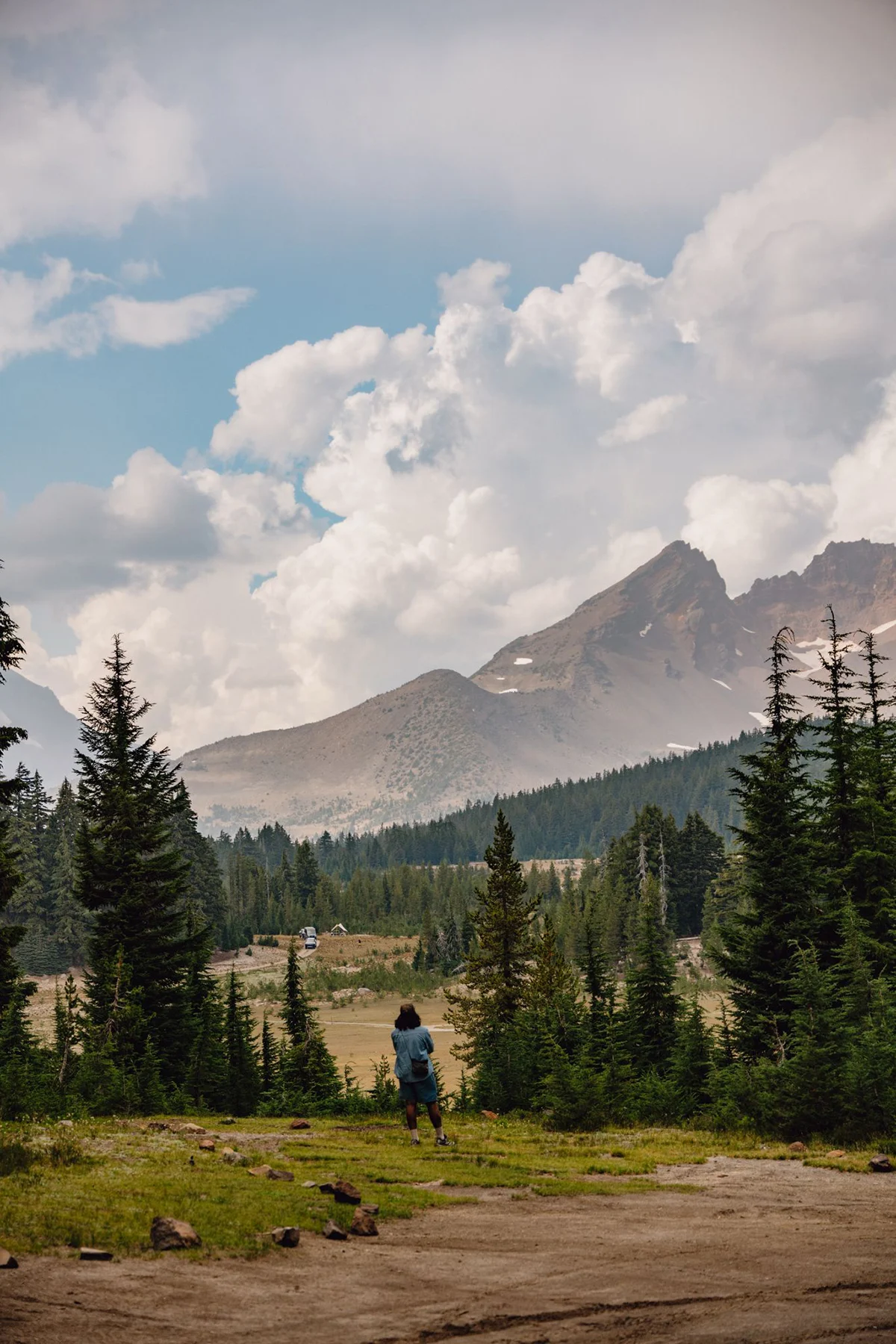I tend to be a cautious person. I know roller coasters are safe, but I rarely ride them. I understand horror movies have artistic value, but I rarely watch them. And yet, when Rashad Frazier hopped into the open bed of a Rivian R1S pickup to ride, no seatbelt, down from a viewpoint looking out over Broken Top Mountain, I didn’t meekly retreat to the familiar security of the backseat. I climbed up and sat right next to him.
I was in Bend, Oregon, on the second of a four-day excursion organized by Camp Yoshi, the adventure travel company Rashad founded with his brother and wife back in 2020. The organization launched with the admirable goal to create spaces where anyone, but especially people of color, can experience the outdoors as a place for rejuvenation, reconnection, and inspiration. Everything about the trips is designed to ease folks who might not have grown up with access to pristine wilderness, who feel confused by the volume of jargon employed by gear shops, or who have felt alone and unsafe on the trail in the past. The all-inclusive trips don’t come cheap—an upcoming six-day excursion to Montana to visit Canvas Glacier and Yellowstone National Park will run you nearly $6,000—but I was told they can transform your relationship to nature.
I am certainly sympathetic to this mission. As a kid, I often begged my parents to take me fishing, hiking, and camping so that I’d have something in common with my white classmates in Louisville, Kentucky. My dad usually demurred: “I would have stayed in India if I wanted to fish for food and sleep outside.” I've had plenty of opportunities to hike, camp, and ride bikes outdoors in the years since, but have largely found the experiences underwhelming. Sure, I enjoyed the opportunity to hang out with my friends without the interruption of cell phones, but I also missed sleeping in my own bed and eating food other than instant noodles.
Still, when Camp Yoshi and Visit Bend invited me to participate in an excursion specifically designed for members of the media where we’d take a bike tour of the city, float down the Deschutes River, camp out under the stars, kayak through Elk Lake, and eat so much delicious food, I quickly asked my editor for the time to attend. Even if I was skeptical that a few days in the forests of one of our country's whitest states could change anything about my orientation to camping, I'm not spiritually designed to turn down the chance to take a multi-thousand-dollar trip for free. Out in Central Oregon, I learned that when Camp Yoshi promises a transformational, restorative experience, the team delivers.

The author at camp | Photo by Jesse Rowell
Camp Yoshi Provides Almost-Immediate Community
After landing at Redmond Municipal Airport, I was quickly identified by Jesse Rowell, a photographer and creative strategist. Jesse is a fixture of the Camp Yoshi team, one of the folks Rashad frequently works with to plan and execute trips. This week, he served as one of our camp guides, offering tips to the more novice campers in our group about keeping your tent clean, getting around the site at night, and using the pop-up outdoor toilets. But at the moment, he was driver and confidant, gamely answering questions about his experience moving to Oregon from Boston a decade ago.
In the year since I left my job as a newspaper editor, I’ve taken basically every opportunity presented to go on a press trip. I’ve gone to Vermont, Arkansas, Alabama, Wyoming, even Germany. On nearly all of those trips, I have been either the only or one of the only people of color in attendance. The other journalists were white, the public relations professionals who organized the trip were white, the representatives from brands who were paying for the trip were white.
Camp Yoshi is Black-owned, but they do trips for anyone. As our group grew from four to seven to thirteen, I realized the Camp Yoshi team had attempted something that I had, to this point, never experienced: this trip to Bend would be exclusively attended and staffed by folks of color.










